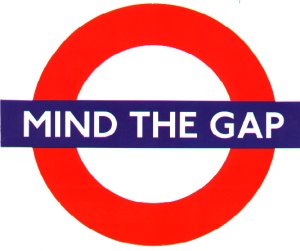The cassette generation
Sami Moubayed
I have been writing too much politics in FW: lately; now is the time for some light nostalgia.
I walked into a music store with my good friend Karim Tabba the other day, and asked for a cassette. “We don’t sell them anymore” replied the attendant, with a big smile on his face. It suddenly hit me; the generation gap that diffrentiated us from our elders and which we once mocked repeatedly, has quickly crept onto our lives as well. When we were 18, for example, we would glare at a balding 30-year old, with white streaks on his hair and children, as “Ancient!” 30 was so far away. I remember when CDs were invented, followed-up by medium sized Video-CDs, and then the modern version of the DVD came along. Our generation learned to use the Internet during their final years in college, or when they first began their working careers. The new generation—now in college—do not remember the world without DVD or Internet. They never used “Double-Cassette Players” to customize a cassette of songs for their high school sweetheart. I once asked a young girl, now turning 19, whether she had ever written a hand-written letter in her life, “bought stamps for it, licked them onto the envelope, and then mailed it from the post office, either to a friend or beloved?” She smiled and looked back at me, as if I were a Brontosaurus Rex. One of the most intimate and warm methods of communication, I still beileve, which outdoes email by a thousand years, is a hand-written letter—sent or received—or a love-letter from one’s beloved.
My friend’s 5-year old daughter chats with her father on MSN. She sends him all kinds of nudges, winks, and smileys, although his office is a short drive from his home. Times have changed indeed. When I used to call my father long distance to Europe (punshing the number over and over—via ‘pulse’ dialing) I used so scream to make myself heard, because of the bad connection. Our Damascus had no mobile phones or Internet; no “tunnel” in the Umayyad Square, just orange and red lightbulbs for decoration, and a colorful variety of Mazdas and Lancers, driving around in circles. We played football in the streets and got a tremendous kick out of the first fast food joint to open in Damascus—Express Restaurant—at the Meridian Hotel. It offered items that looked like McDonalds; Big Macs, nuggets, and real French Fries.
During our early romances, we used to passionately call up a loved ones home, what we know call a “landline,” and hang up over and over whenever her parents picked up (they often said very bad things to us). Young lovers nowadays don’t do that anymore; they don’t even dial the number. They just press a Fast Dial on their mobile phones, and it calls her cellular number. She picks up directly and immediately, or sends an SMS telling her courter when exactly he should call her back. We used to eagerly wait for dance parties in Damascus (with a astronomical entrance fee of $500 SP) and hope that a young lady would agree to join us for a dance, dreaming that it would be a long one, like Bryan Adams’ track from Robin Hood. They never—ever—let us get “too close.”
Our favorite location was a small, worn-out parlor called Uno—our Syrian version of McDonald’s in the 1980s and early 1990s. We frequented a ice-cream shop called Ramez. There were no ‘nightclubs’ in Damascus (back then they were called discotheques)…no Backdoor or Marmar, certainly no In-House, Segafredo, or Costa. The famous hang-out, Sahara Café, was a classy restaurant we would go to on Thursdays with family, and behave because of the ‘serious’ atmosphere. Our entertainment came from Syrian TV, Syrian TV Channel 2 (in English) and Jordan TV. We had no cable TV until the mid-1990s. We played videogames on an Arabic computer Sakhr (with a huge cartharege diskettes) and were made to believe by our parents, that if we played too long, the adapter would explode! Only those growing up in Damascus in the 1980s would understand the joke, I believe.
Having said that, those who preceeded us—those who grew up in the 1970s—had none of our worries, and also, none of our pleasures as well. They listened to Abba and danced to John Travolta’s Saturday Night Fever. We listened to Ragheb Alameh and Michael Jackson. Our parents generation swayed to Elvis Presley, Um Kalthoum, and Frank Sinatra. Of course there have been cross-generation iconic figures—like Tintine, Um Kalthoum, Abdulhalmim Hafez, and Nizar Qabbani, but many of them have not been passed down to the generation that is now in their early 20s. I remember walking into a class of 40 people, all aged 18-19, the day Syria’s legendary playwright Mohammad Maghout passed away. Not a single one of them knew who he was. I explained that he had written the political masterpeice Ghorba, acted by Duraid Lahham. Surely they would know Ghorba, if not from re-runs on TV, then from their parents. Only a few had “heard of it.”
Black & white classics were still popular when we were in high school and college. Young people don’t watch them anymore. Why would they, with the colorless images, poor sound quality, and bad resolution, when they can get Hollywood mega-productions on DVD, with Dolby Sound and great visual effects, on their LCDs? When I was a child, I believed that the world had been black & white and became “colored” during my lifetime. Naïve and creative—no doubt—but its just a glimpse at how a younger generation views the world we lived in, with no Internet, mobile phones, SMS, or DVDs.
Sami Moubayed is the editor-in-chief of FW: Magazine, Syria
Filed under: Media in Syria, Social life in Syria | Tagged: 1980s in Syria, Change, Damascus, generation gap, IN-House, our Damascus, Sami Moubayed, Society, Syria, Syrian TV | 13 Comments »










